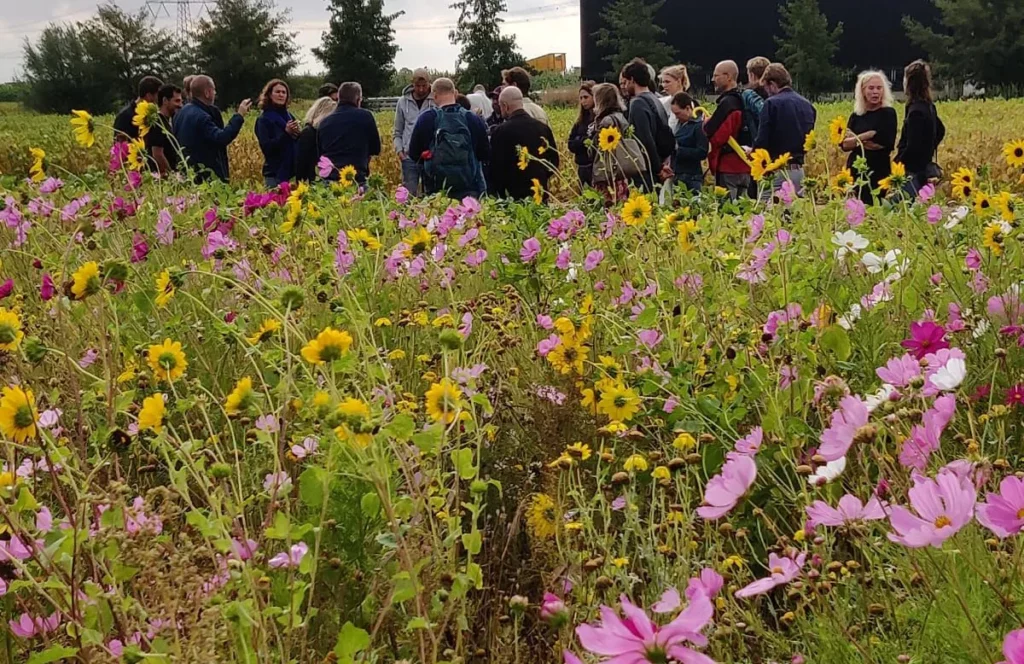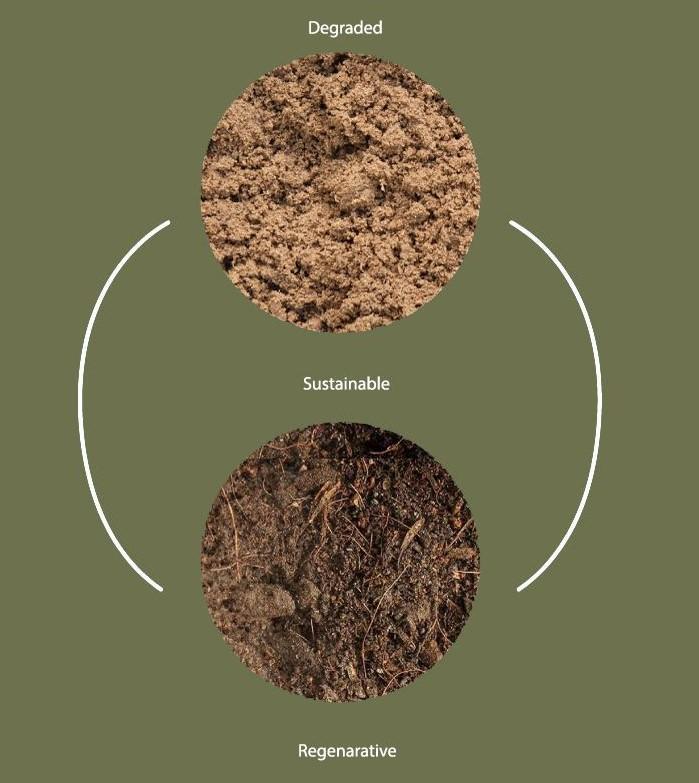Regenerative agriculture
A short definition
Regenerative agriculture is a set of farming practices that works with nature, rather than against it. Core practices include moving towards eventually eliminating synthetic inputs, minimizing tillage, accelerating crop rotation, increasing crop diversity, implementing landscape elements such as flower field margins, keeping the soil covered all year long by growing cover crops in-between cash crops, and integrating grazing animals. These practices, among other benefits, rebuild soil organic matter and restore biodiversity – resulting in both carbon drawdown and improving the water cycle.


These practices have a direct positive impact on the water retention and carbon sequestration capacity of soil, biodiversity levels and food’s nutrient density… We have observed this on our own farm when implementing biodiversity lanes and flower field edges: more bees, more birds, more butterflies, which means healthier soil!.
Regenerative practices harness what nature offers and have been proven not only to increase soil health but also farmers’ yields and profit.
The effects of regenerative agriculture
Increases
- Crop resilience
- Yields
- Quality & nutrition
- Profitability (long term)
- Intrinsic land value
- Natural capital
- Climate resilience

Decreases
- Costs
- Artificial inputs
- Need to irrigate
- Harvest volatility
- Topsoil loss
- Soil degradation
- Run off & drought
Scientific and applied research
Regenerative agriculture draws from decades of scientific and applied research by the global communities of organic farming, agroecology, holistic management, and agroforestry.




